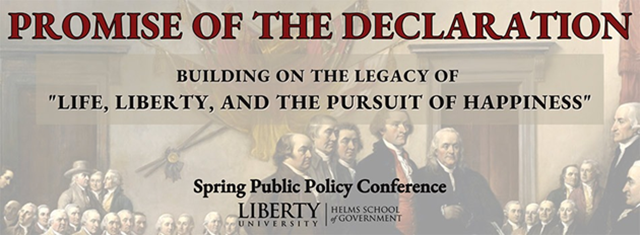Location
Congressional Delegation of Authority to Administrative Agencies
Level of Education
Undergraduate
Keywords
bureaucracy, overreach, courts, Chevron deference
Presenter Names and Speeches.
Katie Cassady, "Bureaucratic Overreach & The Role of the Courts in Protecting Representative Democracy"
Abstract
Although only four departments at the United States’ founding, the American bureaucracy has expanded to address nearly every issue of public life. While these agencies are ostensibly under congressional oversight through monetary allowance and the supervision of the President as part of the executive branch, they consistently usurp their discretionary authority and bypass the Founders’ design of legislative power vested solely in a bicameral legislature.
The Supreme Court holds an indispensable role in mitigating the overreach of bureaucratic agencies. However, despite their obligation to protect the rights of the American people, the courts’ inability to hold bureaucrats accountable has diluted voters’ voices. Since the Supreme Court’s 1984 ruling in Chevron, U.S.A. v. Natural Resources Defense Council Inc., the doctrine of “Chevron deference” causes the courts to defer to bureaucrats in specialized policymaking areas and allow agencies to issue cumbersome regulations while escaping the responsibility required of elected officials. Without the courts to limit bureaucratic jurisdiction and reinforce the Founders’ constitutional design of checks and balances with a separation of powers, American voices go unheard by a government that is supposed to represent them.
Congressional delegation of authority to administrative agencies has also perpetuated the rise of the American regulatory state. To reign in bureaucratic actors, Congress must return to clearly defining statutory terms and exercising their constitutional duties rather than delegating them to unelected bureaucrats.
In this paper, I will discuss a history of the American bureaucracy, the Founders’ intent for the judicial branch, and how American courts have deviated from their role, with emphasis on Chevron deference. I will examine cases decided in recent years such as West Virginia v. Environmental Protection Agency that may contribute to mitigating bureaucratic overreach and lead to the courts’ return to upholding representative democracy.
Included in
Administrative Law Commons, Constitutional Law Commons, Courts Commons, Judges Commons, Jurisdiction Commons, Jurisprudence Commons, Law and Politics Commons, Legal Profession Commons, Legislation Commons
Bureaucratic Overreach and the Role of the Courts in Protecting Representative Democracy
Congressional Delegation of Authority to Administrative Agencies
Although only four departments at the United States’ founding, the American bureaucracy has expanded to address nearly every issue of public life. While these agencies are ostensibly under congressional oversight through monetary allowance and the supervision of the President as part of the executive branch, they consistently usurp their discretionary authority and bypass the Founders’ design of legislative power vested solely in a bicameral legislature.
The Supreme Court holds an indispensable role in mitigating the overreach of bureaucratic agencies. However, despite their obligation to protect the rights of the American people, the courts’ inability to hold bureaucrats accountable has diluted voters’ voices. Since the Supreme Court’s 1984 ruling in Chevron, U.S.A. v. Natural Resources Defense Council Inc., the doctrine of “Chevron deference” causes the courts to defer to bureaucrats in specialized policymaking areas and allow agencies to issue cumbersome regulations while escaping the responsibility required of elected officials. Without the courts to limit bureaucratic jurisdiction and reinforce the Founders’ constitutional design of checks and balances with a separation of powers, American voices go unheard by a government that is supposed to represent them.
Congressional delegation of authority to administrative agencies has also perpetuated the rise of the American regulatory state. To reign in bureaucratic actors, Congress must return to clearly defining statutory terms and exercising their constitutional duties rather than delegating them to unelected bureaucrats.
In this paper, I will discuss a history of the American bureaucracy, the Founders’ intent for the judicial branch, and how American courts have deviated from their role, with emphasis on Chevron deference. I will examine cases decided in recent years such as West Virginia v. Environmental Protection Agency that may contribute to mitigating bureaucratic overreach and lead to the courts’ return to upholding representative democracy.



